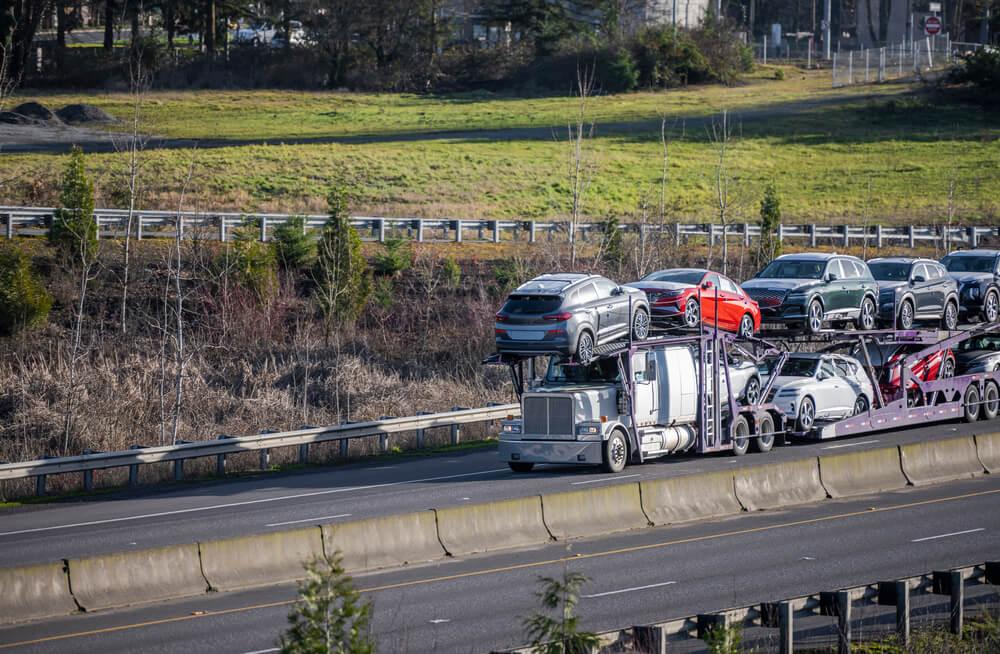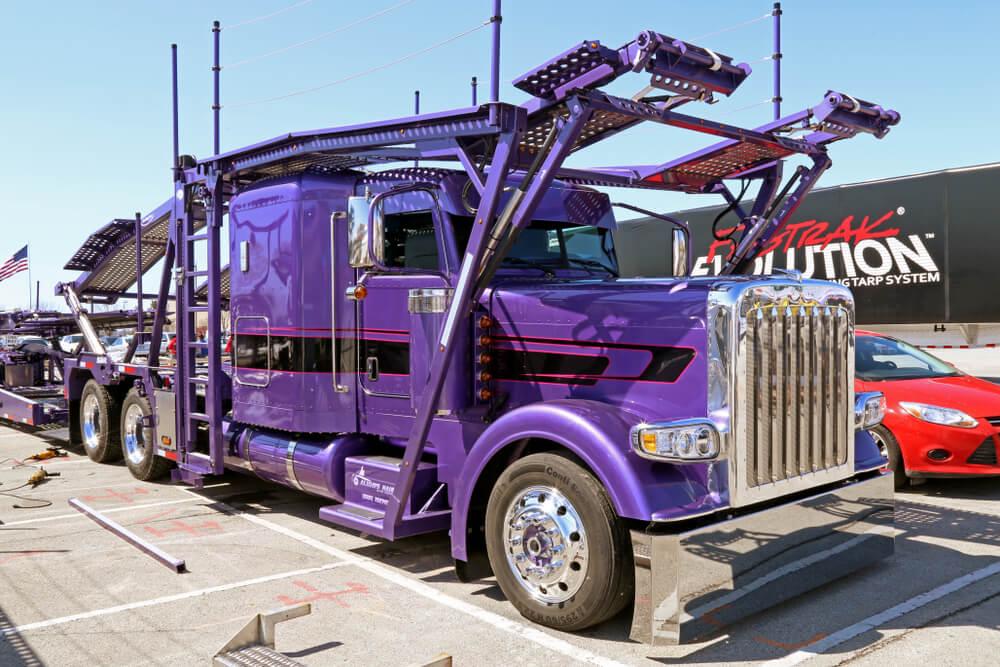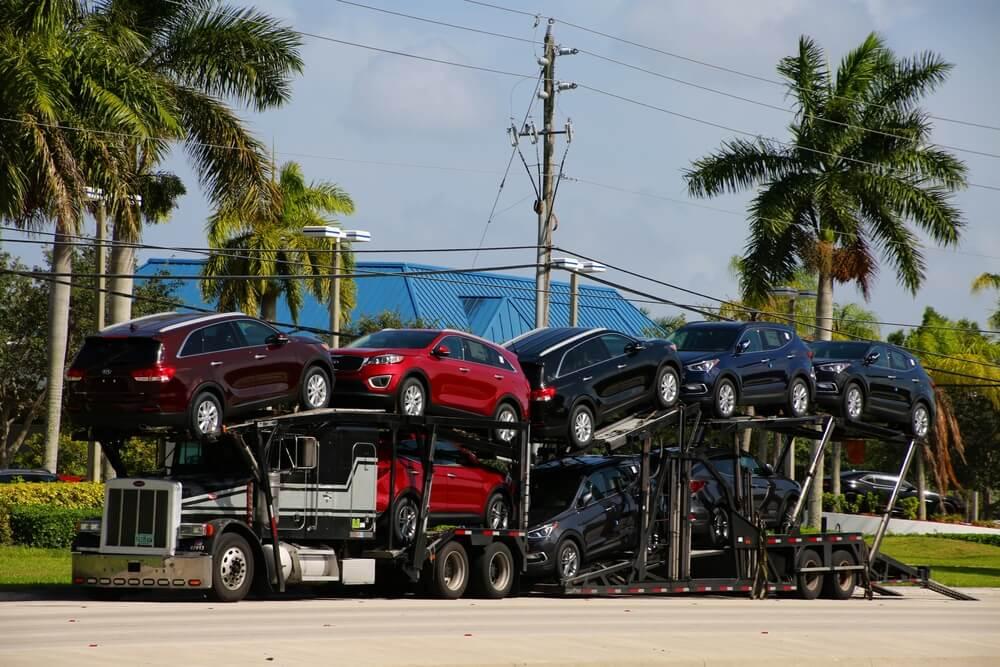
Coast-to-Coast Car Shipping: How Much Does It Cost to Ship a Car?
Sending a car generally costs between $900 and $1,500. This price varies depending on various factors like the size and class of your vehicle, the dispatching method you choose, and the time of the year. For instance, larger or luxury cars requiring special enclosed delivery might push the price beyond $2,000. Selecting the right auto-carrying service, understanding their offerings, and planning could help save on costs.
The price to ship a car from coast to coast can vary depending on several factors, including the type of vehicle, the distance, and the selected moving method. Generally, you can expect to pay between $900 to $1500 for standard open transport, while enclosed relocating may range from $1300 to $2000 or more. For the most accurate pricing, we recommend contacting reputable haulers for personalized quotes based on your specific requirements.
Estimated Cost to Carry a Vehicle
The fee of hauling a car from coast to coast is influenced by various factors, making it important for individuals to have a clear understanding of what determines these expenses. When considering the average charges for sending standard vehicles, it typically falls within the range of $900 to $1,500. However, it's crucial to remember that this estimate is subject to change based on aspects such as the car's size, type, and the chosen method of conveyance. For more precise estimates, engaging with multiple-carrying companies can be beneficial.
For larger vehicles, luxury cars, or those necessitating enclosed transportation, there could be a marked increase in pricing. In these cases, the expenses may surpass $2,000 due to additional requirements and considerations associated with shifting such vehicles. People seeking to deliver vehicles from or to Seattle, for instance, should consider the state-specific regulations and costs.

A luxury sedan being transported across the country using enclosed transportation, for instance to Seattle, may incur costs ranging from $1,000 to $2,450. Similarly, shipping an oversized truck cross-country might result in expenses of $1,200 to $2,100. Individuals need to recognize how these numbers play a significant role in determining the final shifting expenses and should be factored into their overall budgeting. These things can impact the amount of money you expect to spend.
Furthermore, several external elements also come into play when estimating car delivery charges. The distance of transport is a pivotal consideration, as longer distances generally entail higher expenses. Additionally, seasonal demand can lead to fluctuations in pricing. Moving during peak seasons could raise fees due to heightened competition and increased demand for services. Conversely, selecting off-peak periods for hauling can lead to potential savings of up to 15% in total expenses.
To put it into perspective, deciding whether you want your car shipped via open carrier or enclosed delivery can be likened to choosing between economy class and first class when booking a flight. Just like how first-class accommodations come with a higher price point due to added perks and amenities, the enclosed option offers enhanced protection and incurs higher charges compared to open carriers. This way of understanding can help you better budget your money for carrying.
In essence, consumers need to factor in all these variables when determining their budget for coast-to-coast car shipping. By doing so, they can make informed decisions that align with their specific requirements and financial constraints.
Understanding the price components of coast-to-coast car shipping provides a solid foundation for exploring the various available moving services. Knowing the number of people who opt for each type of service can also influence one's choice. Let's now delve into an overview of the options you have when it comes to sending your vehicle from one end of the country to the other, including understanding the car hauling expenses for various routes.

Overview of Relocation Services
When it comes to shipping your vehicle from one coast to another, auto transport companies offer a range of services tailored to meet different needs. The two primary options are open and enclosed.
The open is the more common and cost-effective option for car shipping. Your vehicle will be driven onto an open trailer with other cars and moved across the country along established routes. This method is suitable for most types of vehicles and is generally a safe and reliable option. Although generally secure, it's important to note that your vehicle will be exposed to the elements during transit.
On the other hand, enclosed provides enhanced protection for your vehicle during the shifting process. This method involves relocating your vehicle to a covered trailer, offering protection from potential damage caused by weather conditions, road debris, and other external factors. Enclosed transport is particularly ideal for high-value cars, classic vehicles, or exotic cars that require extra care and protection during transit.
Moreover, some specialized movers may offer additional services such as expedited shipment, door-to-door delivery, and real-time vehicle tracking. These supplementary services can further accommodate specific delivery needs and provide added convenience for customers, such as arranging shipments from terminal to terminal and utilizing efficient routes like Los Angeles to New York.
Expedited option can be advantageous for those who require their vehicle to arrive at its destination within a shorter timeframe. This service offers priority scheduling and quicker delivery options, ensuring a faster turnaround time for shipping.

Door-to-door delivery eliminates the need for customers to drop off or pick up their vehicles at specific terminals or depots. Instead, the conveyors will arrange for the vehicle to be picked up from the designated location and delivered directly to the customer’s desired address.
Real-time vehicle tracking allows customers to monitor the progress of their vehicle's shipment throughout the entire hauling process. This feature provides peace of mind by offering visibility and updates on the current location and status of the dispatched vehicle.
Understanding these diverse shipping services provided by movers allows customers to select the most suitable options based on their specific requirements, ensuring a smooth and efficient coast-to-coast vehicle shipment experience.
With a clear picture of the available carrying services, let's now explore the different factors that influence the fees of carrying a vehicle from coast to coast.
Factors Influencing Moving Costs
When it comes to shifting your car across the country, several key factors influence the cost involved. Understanding these elements can help you make informed decisions and plan your budget effectively. Here are the main elements that play a crucial role in determining the cost of coast-to-coast car shipping, including key aspects like distance and chosen route. Longer distances often entail higher prices due to increased fuel and time requirements for the carrier. Pickup and delivery locations across different routes, such as the popular route from Los Angeles to New York, can also significantly affect the pricing. Urban areas typically have better access and expenses advantages, leading to lower hauling fees compared to remote or less accessible locations. For instance, cities like New York in the United States tend to have more competitive gas prices and a plethora of car carrier services, which can be beneficial when considering carrying rates across different regions.

Distance and Location
Furthermore, some carriers may have limited availability in certain areas, particularly in the south, leading to higher costs for pickup or delivery locations that are more remote or less frequently serviced. This is an important consideration when planning your coast-to-coast car shipment as it can impact convenience and overall price.
The time of year at which you plan to ship your car can have a notable impact on the overall cost. Seasonal fluctuations play a significant role in determining shifting costs, with demand being a key influencer. During summer months, there tends to be a surge in demand for car shipping services as families relocate and individuals embark on road trips and relocations. This heightened demand during peak moving season often results in higher prices for auto transport services. Conversely, delivery costs may experience a slight reduction during winter months due to lower demand for car shipping services.
Time of Year
Understanding these seasonal fluctuations in demand and their subsequent impact on pricing can be advantageous when scheduling your coast-to-coast car shipment. Planning and booking your auto transport during off-peak seasons or less busy periods could potentially yield cost savings as carriers may offer competitive rates to fill capacity during slower times.
These are just a few of the important factors that contribute to the overall cost of shipping a car across the country. Now, let's explore additional factors that can influence the expenses associated with coast-to-coast auto transport.
When it comes to hauling a car across the country, the type and condition of the vehicle play a significant role in determining the overall cost. Let's start by looking at how the type of vehicle impacts shipping expenses.

Type and Condition of the Vehicle
Different types of vehicles come with varying dimensions and weights, which directly influence hauling costs. For example, larger and heavier vehicles such as trucks, SUVs, or luxury cars take up more space on a model car carrier, potentially increasing the cost of transport. The size and weight of the vehicle, among other factors, such as location specifics like urban New York or Southern states, are taken into consideration when determining the shifting fee. It's important to keep in mind that oversized vehicles can significantly impact the total dispatching expenses due to their size and weight.
For instance, sending a compact car is likely to be less expensive compared to shipping a larger vehicle like an SUV or a truck. Moreover, luxury vehicles often fall into a higher price bracket due to their weight and insurance value. This leads to additional care required during transport, further affecting the cost.
In addition to the type of vehicle, its condition is another crucial aspect that influences delivery charges. Inoperable or non-running vehicles typically require additional equipment and effort to load and transport, resulting in higher sending expenses compared to operable vehicles. This is due to the specialized equipment and handling required to safely load and convey a non-running vehicle. This information forms a crucial part of the article, educating readers on factors affecting cross-country vehicle relocating.
Whether due to mechanical issues or damage, non-running vehicles may necessitate special arrangements for loading onto the carrier. This necessitates the use of additional tools and labor, which can further drive up the costs associated with shipping. This often involves additional expenses, such as equipment for winching or towing the vehicle onto the hauling trailer. As a result, the overall cost of dispatching a non-operational vehicle tends to be higher compared to its operable counterparts.
Understanding these differences in both vehicle type and condition is essential when considering coast-to-coast car delivery. From dimensions to operability, these factors directly contribute to the final cost of moving your vehicle across the country. It is particularly important to note these details if you are carrying larger vehicles or sedans.
Now that we've explored how the type and condition of your vehicle impact shifting costs, let's move on to uncovering strategies for finding the best deals when it comes to relocating your car coast-to-coast.
When it comes to finding the best deal for moving your car, it's all about doing your homework and being a savvy customer. By understanding what to look out for and what to avoid, you can secure a reliable and cost-effective service. One essential question to consider is how fluctuating fuel prices might affect the quote provided by the haulers.

Searching for Best Hauling Deals
The first step is to get quotes from several reputable auto transport companies. Not all companies offer the same level of service, and their pricing can vary significantly. If you're looking to ship your vehicle from or to Texas, consider how local market conditions might influence the rates offered. By obtaining multiple quotes, you'll have a better idea of the average cost of sending your vehicle and be able to compare the services offered by different companies. Remember, the lowest price isn't always the best option. It's crucial to consider the company's reputation, insurance coverage, and customer service ratings. Don't forget to ask about any hidden costs or additional fees not included in the initial quote.
Obtain Multiple Quotes
Timing can play a significant role in the cost of sending your car. If you're flexible with the moving timeline, you may have more negotiating power when it comes to pricing. Shorter lead times and specific delivery dates may come with higher price tags due to urgency. On the other hand, selecting extended delivery windows can lead to more economical rates. Booking in advance and outside of peak seasons can often lead to lower costs.
Consider Timing
By obtaining multiple quotes and considering timing factors, you'll be equipped with valuable information to make an informed decision when choosing an auto transport company. Keep in mind that while cost is important, considering the company's reputation, insurance coverage, and customer service ratings is equally vital before making your final decision.
When it comes to relocating your vehicle, having the right insurance coverage is crucial for peace of mind and financial protection. Reputable movers typically provide basic insurance coverage as part of their services. This insurance is intended to offer a level of protection in the event of damage to your vehicle during transit. However, it's essential to grasp the specifics of this basic coverage and consider whether additional insurance options may be necessary.

Insurance Policies and their Influence on Cost
The basic insurance coverage provided by haulers may differ. Some offer a standard policy that covers damages during loading, transportation, and unloading by the carrier. Car owners should carefully review this information and compare it against their specific needs.
The basic insurance coverage provided by movers may differ. Some offer a standard policy that covers damages during loading, dispatching, and unloading by the carrier. Car owners should carefully review this information and compare it against their specific needs. Factors such as the value and condition of the vehicle should be considered when evaluating the adequacy of the basic insurance coverage included in the carrying service.
Beyond basic coverage, some dispatchers provide supplemental insurance options, enabling customers to increase coverage to the full value of the vehicle or address specific conditions. While these supplemental insurance options may enhance the level of protection for the shipped vehicle, they can also impact the overall delivery cost. Car owners should weigh the potential benefits of additional insurance against the associated costs, particularly when sending vehicles with high value or unique characteristics.
It's important to note that while securing additional insurance options may result in extra costs, they can offer valuable peace of mind and comprehensive protection for your vehicle. Before deciding about supplemental insurance, consider factors such as the sentimental or monetary value of the vehicle, its susceptibility to specific risks, and whether specialized coverage may be required under certain conditions or situations.
For instance, if you're moving a classic car with significant emotional and monetary value, opting for additional insurance that covers its full value may be a prudent choice. Similarly, if your vehicle has unique features or requires special handling during transit, exploring supplemental insurance options tailored to these specific conditions could provide added security and reassurance.
Clearly, understanding the various insurance options available and their influence on hauling costs is an essential aspect of planning for car relocating.
Ensuring comprehensive insurance coverage for your car shipment is not just about meeting regulatory requirements; it's about protecting your prized possession. By understanding the nuances of different insurance options, you can make an informed decision that aligns with your needs.







 Share on Facebook
Share on Facebook Share on LinkedIn
Share on LinkedIn Share on Twitter
Share on Twitter




 Google
Google  Instagram
Instagram  Trustpilot
Trustpilot 



